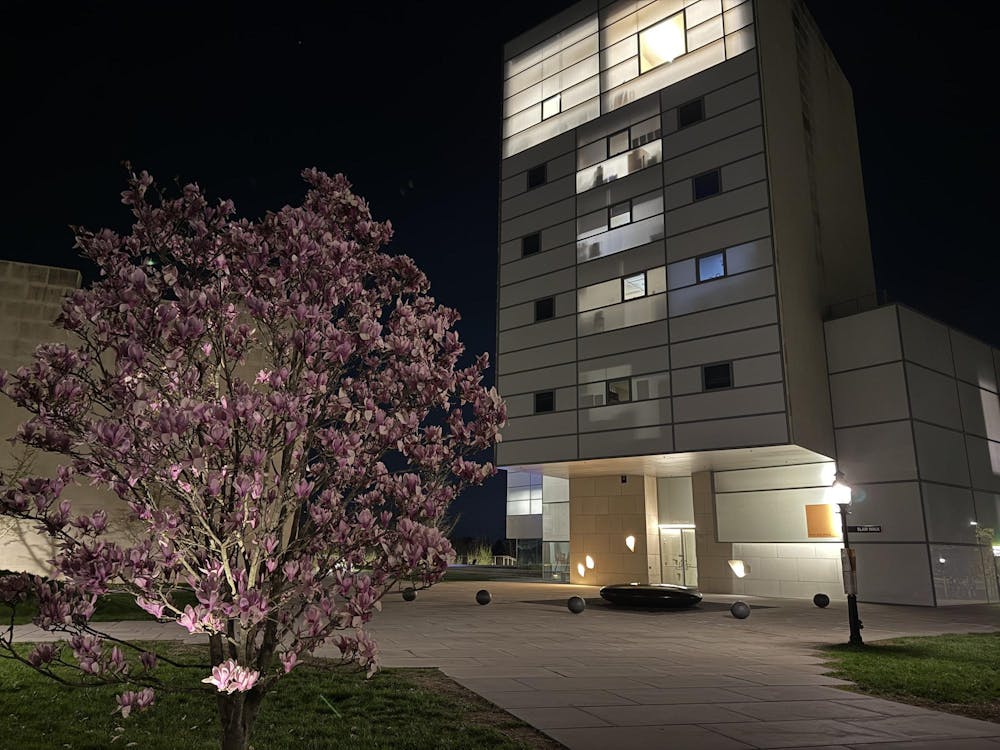Fifteen Princeton affiliates have received Guggenheim Fellowships, an award celebrating “scholars, scientists, and artists in over 50 different fields of study across the fine arts, social sciences, humanities, and natural sciences.”
A total of four faculty members, two arts fellows, and nine undergraduate and graduate alumni are being recognized for their work. Princeton affiliates received 11 Guggenheim Fellowships last year and eight in 2023.
The Guggenheim Fellowship began in 1925, with this year’s fellows marking the 100th class of the program. There are a total of 198 fellows this year.
Accra Shepp ’84 received the fellowship for his work in photography. He addressed the importance of awards such as the Guggenheim Fellowship to the arts, especially compared to fields such as law, education and medicine where there are concrete titles and ranks that are shared across the field.
“In the fine arts, we have no such ranks or titles,” he explained. “The Guggenheim, over its 100 cycles of giving, has become one of the few markers of artistic success.”
Professor of East Asian Studies and History Thomas Conlan is “profoundly happy” to receive the fellowship.
“A Guggenheim Fellowship means so much to all recipients because it represents the cumulative recognition of a lifetime of scholarly work,” he wrote in a statement to The Daily Princetonian.
This sentiment was echoed by many of the other fellows.
“It’s really special to be a member of the 100th class of fellows,” wrote Kellen Funk GS ’18, professor of law at Columbia Law School.
“I’m really grateful to the individual people on the selection committees behind the fancy institutional names that saw promise in my path as a composer,” wrote Peter Shin, a 2025–26 Hodder Fellow in the Lewis Center for the Arts who was awarded the Guggenheim in the field of music composition.
While the fellows all expressed appreciation for the award, some addressed humanities and the arts within the current political climate.
Rhodri Lewis, a lecturer with the rank of professor in English, was awarded the Guggenheim Fellowship for his work in literary criticism.

“The recognition for literary criticism is just as important [as personal recognition], especially at a time when even its defenders seem more than a little confused about its merits and enduring value,” Lewis explained.
“I feel lucky to have won this award when I know that so many of my colleagues in Princeton and elsewhere are doing excellent and equally deserving work.”
Annette Yoshiko Reed GS ’02, Professor of New Testament and Early Christianity at the Harvard Divinity School, expressed that “it is a bit discombobulating to receive this fellowship at a time when academic knowledge in general and the Humanities in particular are under fire.”
In a statement to the ‘Prince,’ Reed wrote, “I am deeply grateful for the Guggenheim foundation for standing up for academic knowledge … [and] all the prouder to be an alum of Princeton, which continues to fight for academic freedom even in difficult times.”
Carolyn Rouse, the Ritter Professor of Anthropology, explained that following the collapse of the Soviet Union, “many social scientists treated American democracy and capitalism as the end point of human development.”
“What I hope people now realize is that our country was never singularly rational, logical, or compassionate,” she wrote. “American culture is just as strange and irrational as any other cultural system.”
With the award, Rouse aims to “return to the field” to finish her book and film on low white life expectancies in rural California.
Katherine Jansen GS ’95 is using the financial award to research and write a new book. It will “take me full circle back to Rome and the Vatican Library where I did the research for my dissertation,” she explained. “I can’t wait to get my hands dirty in the libraries of Rome.”
Meanwhile, James Turner GS ’04 is working on a book telling some of the stories of a “post-combustion future” — focusing on places in the world that are ahead of the United States in transition away from fossil fuels.
Fellows also shared some words of advice for those pursuing the humanities and academia in general.
Laura Beers ’00 received the award for her work in intellectual and cultural history. “Be sure that you are committed to the journey as much as the destination,” she wrote. “If you do end up in academia, it’s a wonderful career, but it is such an uncertain process to land an academic job.”
“Now, I have no excuse not to knuckle down and write the book,” she wrote to the ‘Prince.’
Maria Chudnovsky GS ‘03, professor of mathematics, advised students to “take one step at a time, and don’t get discouraged if something does not work out right away.”
“I am grateful to my colleagues and collaborators, and especially to my graduate and undergraduate students, who have worked with me through the details of enumerable failed ideas,” she added.
“Art takes time and that’s OK, resting without guilt is productive, and rejecting a capitalist output mindset is delightful,” Shin wrote.
Angela Esterhammer GS ’90, Katie Kitamura ’99, Carla Williams ’86, and Princeton Arts Fellow yuniya edi kwon also received the Guggenheim Fellowship this year.
Victoria Davies is a head News editor for the ‘Prince.’ She is from Plymouth, England and typically covers University operations.
Please send any corrections to corrections[at]dailyprincetonian.com.








